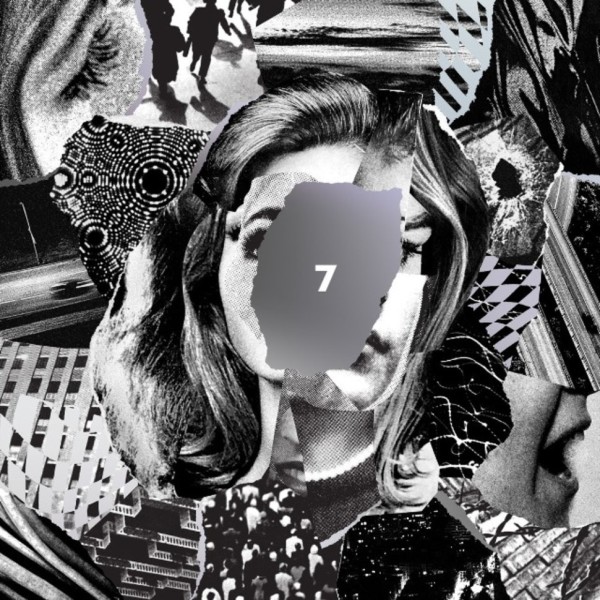Beach House, the Baltimore-based shoegaze duo comprised of Victoria Legrand and Alex Scally, is an unceasing storm of brilliance with an impressive catalogue of seven albums spanning 13 years. Their third album, Teen Dream (2010) seemed to be where they truly sculpted their sound, carving out their own niche within the dreampop genre. “Silver Soul” was my gateway drug, and their music has held its addictive quality throughout the years. A glancing listen to the hits off Depression Cherry and Bloom might give an impression of stagnancy, but a more conscientious play through demonstrates how the composition of each album changes drastically, their sound becoming more evolved and experimental.
7 is by far the dream pop duo’s most complicated and mature record yet. The self-explanatory title embodies a sincere simplicity, although the numerological symbolism seems befitting to the band’s mystical persona. In various press releases for the record Beach House cited the bleak political climate of 2016-2017 as an influencer. “Thematically, this record often deals with the beauty that arises in dealing with darkness; the empathy and love that grows from collective trauma; the place one reaches when they accept rather than deny.” 7 also draws inspiration from the ’60s with its pop-art album cover, composed of splintered black-and-white images pasted in a haphazard collage, and the release of optical illusion music videos that accompanied the album.
This is what it looks like when art takes on a life of its own. This album breathes. It is a wall of energy, a battle between the wrestling bodies of light and dark. “Dark Spring” crashes in with a fervent drum roll, harmonious voices drawing you down twisting paths into a secluded, shadowy forest. If this album is a body, “Lemon Glow” is the pulsating nucleus. This song is enchanting from the first reverberating chords, Legrand’s voice at once seraphic and eerie. “When you turn the lights down low/Lemon color, honey glow,” she sings over a throbbing bassline, weaving that familiar aura of ambiguity, speaking on the vague nature of intimacy.
“Drunk In LA” feels like a burial, with church-like keyboards suspended over a clock-ticking metronome. The theme of aging surfaces, Legrand occupying a space of melancholic isolation, the melody spiraling downward. “Lose Your Smile” sustains that floating, weightless feeling that Beach House is known to create. This is driving music, I can imagine drifting aimless down a vacant road beneath a dimming sky. Legrand’s voice reminds me of Nico, with its distant, observational tone, as if she’s people-watching from a window. “Woo” revives ’80s vibes with intricate layers of synths, dreamily nostalgic. The album’s epilogue, “Last Ride” is a cathartic exhale. It begins with sentimental piano riff that builds to a cinematic climax, Legrand murmuring over wailing guitars. The song is full of a nameless yearning, a therapeutic conclusion to a chaotic trip of a record. — MARIAH HALL

